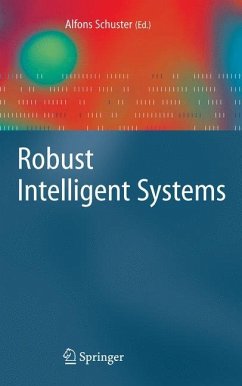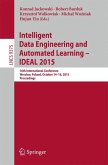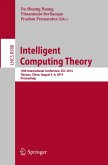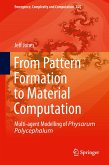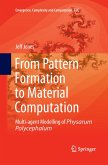Using artificial intelligence and robustness as a unifying theme, this book comments on the fundamental strategies found in nature (such as redundancy, granularity, adaptation, repair, self-healing, etc.), and how an understanding of these can be used to further research into general design principles for artificial intelligence in the context of a diverse range of modern research areas and systems (including pervasive computing, autonomic computing, ambient intelligence, bioinformatics and others).
Contributions from experts in the field provide an invaluable insight into a variety of cutting-edge research areas using artificial intelligence and robustness as the central theme. Practitioners in various fields will gain an insight into the important role robustness plays in natural and artificial systems in general, and in artificial intelligence in particular.
Our time recognizes robustness as an important, all-pervading feature in the world around us. Despite its omnipresence, robustness is not entirely understood, rather dif?cult to de?ne, and, despite its obvious value in many situations, rather dif?cult to achieve. One of the goals of this edited book is to report on the topic of robustness from a variety and diverse range of ?elds and perspectives. We are interested, for instance, in fundamental strategies nature applies to make systems robust-and arguably "intelligent"-and how these strategies may hold as general design principles in modern technology. A particular focus is on computer-based systems and appli- tions. This in mind, the book has four main sections: Part I has a look at robustness in terms of underlying technologies and infrastr- tures upon which many computer-based "intelligent" systems reside and inves- gates robustness on the hardware and software level, but also in larger environments such as the Internet and self-managing systems. The contributions in Part II target robustness in research areas that are inspired by biology, including brain-computer interfaces, biological networks, and biological immune systems, for example. Part III involves the exciting ?eld of arti?cial intelligence. The chapters here discuss the value of robustness as a general design principle for arti?cial intelligence, stressing its potential in areas such as humanoid robotics and image processing.
Contributions from experts in the field provide an invaluable insight into a variety of cutting-edge research areas using artificial intelligence and robustness as the central theme. Practitioners in various fields will gain an insight into the important role robustness plays in natural and artificial systems in general, and in artificial intelligence in particular.
Our time recognizes robustness as an important, all-pervading feature in the world around us. Despite its omnipresence, robustness is not entirely understood, rather dif?cult to de?ne, and, despite its obvious value in many situations, rather dif?cult to achieve. One of the goals of this edited book is to report on the topic of robustness from a variety and diverse range of ?elds and perspectives. We are interested, for instance, in fundamental strategies nature applies to make systems robust-and arguably "intelligent"-and how these strategies may hold as general design principles in modern technology. A particular focus is on computer-based systems and appli- tions. This in mind, the book has four main sections: Part I has a look at robustness in terms of underlying technologies and infrastr- tures upon which many computer-based "intelligent" systems reside and inves- gates robustness on the hardware and software level, but also in larger environments such as the Internet and self-managing systems. The contributions in Part II target robustness in research areas that are inspired by biology, including brain-computer interfaces, biological networks, and biological immune systems, for example. Part III involves the exciting ?eld of arti?cial intelligence. The chapters here discuss the value of robustness as a general design principle for arti?cial intelligence, stressing its potential in areas such as humanoid robotics and image processing.

